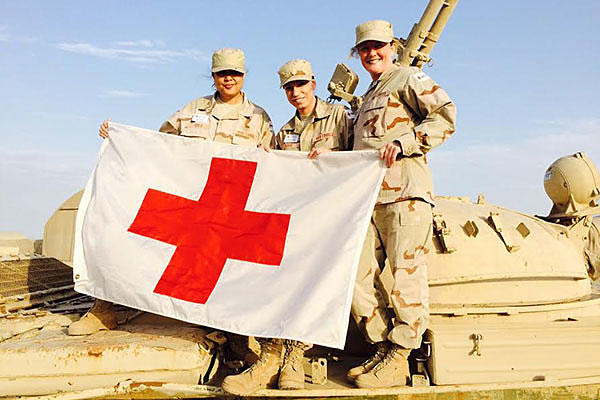We all know that it's good to give. It's good for the recipient, and it makes us feel good about ourselves. But when trying to decide which of the -- no kidding -- 400,000 military charity associations that help families and veterans in some way to give our hard-earned dollars to ... We. Can't. Even.
Worse, in recent years, some of the biggest and best known of these military charity associations have been hit with some less than stellar accusations.
It's enough to make you just close up your wallet and quit.
But wait. We can help you -- relatively easily and quickly -- find a military-affiliated charity you'll feel great about supporting.
Start by asking yourself the following three military charity questions:
1. What makes you smile? What makes you mad? When you're scrolling through social media, what catches your attention?
With so many charities to choose between, find one that does something that stirs you. Want to help deployed troops find foster homes for their pets? Or maybe you want to help make a wounded warrior's home wheelchair accessible? Perhaps you'd like to provide school supplies to military kids, or fund a scholarship to help a military spouse to earn a degree? There's a charity (or 1,000) out there doing each of those things. Take to Google, search for the things that interest you and jot down the names of a few organizations that are doing that thing that makes you smile.
2. How do you plan to give?
Will you make a one-time donation or commit to ongoing donations? Do you or your spouse work for the federal government? No biggie if you don't, but if you do, the Combined Federal Campaign (CFC) is the largest and most successful workplace fundraising campaign in the world. Over the past 50 years, the CFC has raised $7 billion to help people in need around the corner, across the nation and all over the world. Through the CFC's Universal Giving campaign, federal employees can donate to any CFC-approved charity in the country.
If you're eligible to give this way, you'll have peace of mind built in that the charity you're donating to is fully vetted. The U.S. Office of Personnel Management screens all CFC-participating charities against the IRS Master File of Exempt organizations to ensure that they are registered as 501(c)(3) charities. In addition, all CFC charities are reviewed annually for evidence that they are providing services on a local, state, national or international level and meeting the standards of public and financial accountability. That said, the CFC review does not evaluate whether an organization uses its donations efficiently.
If you don't work for the federal government, you can still search to see if the charity you're interested in is on the CFC's list.
3. How important is it to you that the charity be a good steward of your money?
(Hint: It's probably pretty important if you're reading this article.)
Watchdog web sites like Charity Navigator, Guidestar, Charity Watch, Philanthropedia, Standards for Ethics Institute, and the Better Business Bureau's Wise Giving Alliance can give you more information on the charities you're most interested in supporting.
That said, watchdog sites aren't the final word on whether an organization is worthy of your dollars. Even charitable giving experts are torn on what makes a charity a good bet. And, it's important that you compare organizations fairly. Museums, for example, will have higher operating costs than food banks and that's OK.
Now just give already.
Once you feel good about a particular organization, stop researching and make the gift. Don't be a victim of analysis paralysis. If you've gone through the above steps, you should be able to make a knowledgeable donation and feel great about the good you've done. In the end, all giving is good.












